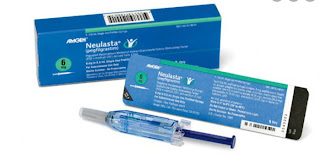Yesterday, January 24, 2021, it was my two year anniversary of receiving a new (used) liver. To celebrate this achievement, I have invited a guest to blog about his perspective. He has a lot to say so enjoy.
Hi y’all, Donna asked if I would offer my thoughts regarding her transplant. I said sure, why not. This post is my perspective as her caregiver. These are my thoughts and feelings, not hers.
First let me say how horrible the last couple of years have been for both of us. As awful as it’s been, at least, I never had to experience what she went through, the sickness, the pain, the misery and the fear that I might not survive. Donna had to endure all of it.
LIVER DISEASE
Donna’s brand of liver disease is called cirrhosis (scar tissue). When this condition gets bad it prevents the liver from working properly which in turn causes many serious problems, varices (bleeding blood vessels), enlarged spleen and a condition known as ascites. Ascites is a buildup of nasty fluid that collects in your abdomen and thoracic cavity (lungs). The sick liver can’t remove it so it must be removed by a centesis procedure (needle aspiration). Ascites that collects around the lungs, can prevent normal breathing. A buildup in the abdomen can cause a pressure tear in the umbilical area (belly button). If these hernias tear enough they can become dangerous. If the intestine becomes trapped in the abdominal wall, they can be life threatening if not repaired when they are small. Over time these hernias can get large due to the ascites fluid pressing on the abdomen area.
DIAGNOSES 2018
Donna is now in need of a transplant but she needs to qualify and then be placed on a waiting list. This is because there are more folks needing organ transplants, but too few organs available. Looks like it could be a year or even longer till she gets an “offer”. In the meantime the hospital is strongly recommending a procedure that should help keep the ascites under control until she gets a transplant. After having this procedure explained by the doctor I was scared to death, I just had a bad feeling about it. TIPS is a stent that connects one vein in the liver with another vein (portal to hepatic veins), rerouting blood from the liver. You can only get this procedure done once so you better hope it is successful. No pressure here, right? So what happens? During the procedure the interventional radiologist TEARS Donna’s portal vein. This creates a large DVT (deep vein thrombosis). Or in other words, a large blood clot that could create a blockage of blood flow or a section could break off and travel through the bloodstream possibly causing a stroke, heart attack, or pulmonary embolism (blood clot in lung). Any of these events could be fatal!! To make matters worse, we were never told about the damage done to the portal vein. Not by the doctor who performed the procedure, not by the hospital or not by any of the doctors, nurses, or techs.
After this procedure they kept her in the hospital for 10 days, two days is normal. When I asked why they would not release her, they said they wanted her to get stronger, but they were doing ultrasound tests and takings X-rays of that damaged portal vein, and they never told us about any of this. We tried to find the procedure report but it was not loaded on her profile page, and as of today still not on there.
Considering she was at risk, did they move her higher up on the wait list?? Nope, still made her wait till transplant, even though she could have died from this over the course of eight months.
TRANSPLANT CALL
On January 23, 2019 (the day before transplant), her umbilical hernia tore, and she had intestine trapped in her abdomen wall, this was now an emergent situation. So off to the ER we go. They took images to confirm the intestine entrapment, just great!! This is all we need!! It could have been prevented if one of her doctors had diagnosed it correctly in the beginning. He told us the bulge in that area was not a hernia, but a fluid sack that some people with liver disease get......REALLY?? Over many appointments with him and multiple exams of the hernia, and he never got it right. Now it’s serious and dangerous, so what’s next? They can’t repair the hernia now due to its size and the fact that her liver and associated conditions will not allow a surgical repair. Boy are we screwed now!! There really is no way to hold intestines in the body with a tear like this. Even hernia belts won’t really work well. If the intestine were to rupture and the contents enter her abdomen this could create a horrific emergency, one that she may not survive. I’m starting to wonder if my wife is going to survive all this.
I take her home and later that night (at 3:00am) the phone rings. It’s the liver department with a possible liver, wow, this seems too good to be true. But we were told we had to arrive at the hospital within a half hour. Why so soon I was asking myself? We dressed quick and sped off to the hospital. We didn’t even have time to fart. Got there and were rushed up to the transplant floor where Donna was prepped for surgery, everyone in a mad dash to save time. But why? The surgeon and his assistant come in our room and start to explain the situation, how the donor died, how old he was, how his liver size was compatible with Donna’s, that the blood types matched and everything seemed ok....I guess, but I had an uneasy feeling about all of this. This is all not happening the way that it was explained that it would. For me, not enough information about the donor and not enough clarification regarding the positive viruses in the liver.
The surgeon explained that the donor liver was a DCD (donation after cardiac death), and had tested positive for EBV (Epstein Barr Virus), and CMV (Cytomegalovirus) viruses. He explained that EBV is a common virus that a lot of people get, and referred to it as the “kissing virus” because a lot of young people transmit it that way. Nothing more was said about the EBV virus. He then explained the CMV virus was also positive in this liver, but that Donna had tested positive for this previously so she would have had some level of immunity to it. What the surgeon did not explain was the danger of a female EBV negative recipient receiving a male positive infected EBV liver. No mention from him regarding the very high possibility of cancer. The surgeon did not inform us of the large tumor in the liver which I believe was cancerous. He also failed to inform us of the biliary damage that the liver had. We have since learned that the liver has ischemia damage and cellular damage.
There are federal laws on the books that require transplant centers and hospitals to disclose all pertinent information in organ transplant cases. This is called “INFORMED CONSENT”. After the brief discussion we decided to accept this liver because we did not have any information about it that would have created a red flag.
So here we are at 4:00 am trying to quickly decide whether we should accept a life changing organ that we know very little about. When you buy a house or a car, you have the opportunity to have them inspected, evaluated and see a sellers disclosure so you can make an intelligent decision before you buy, but not in this case. The life of your loved one is now dependent on the surgeons proficiency and honesty. Transplant recipients should have the right to know about the donors medical issues, that pertain to the organs condition. Example, did the donor have cancer, or other diseases? HIPAA privacy laws are in favor of the donors privacy, but not the recipients rights. It’s ridiculous to deny the recipients this life saving information, it might mean the difference between life or death, or they will only live a short life until they die from these other diseases and illnesses.
The FDA allows transplant hospitals to use organs that are infected with potentially deadly viruses. EBV and CMV are now cleared to be used in transplants due to the shortage of donor organs. Even organs that are cancerous are now cleared to use. The rule however is that they are to be used in people who are very sick and might die soon if not transplanted. This was not the case with Donna. Her MELD score (Model for End Stage Liver Disease) was 24, not an emergent condition. The biggest concern is that the hospitals/surgeons need to inform the recipients and explain the full details and ramifications of the diseased organs. Otherwise it is a blind offer and violators should be prosecuted under federal laws.
I felt extremely hesitant to accept this liver. I did not have the heart to tell Donna that we should pass on it. I also felt a lot of pressure from everyone involved to accept it. It just seemed a little odd that all of a sudden the hospital had a suitable liver or was it just a liver but not so good? Considering 1 1/2 years of suffering and going through three failed TIPS procedures, endless tests and more endless procedures, being so sick she lost over 100 pounds, so to spare her more agony we decided to accept this liver and signed the consent forms.
As it turned out, the worst mistake I ever made. Just after Donna had gone off to surgery, the surgeon told me the final serologies (blood and tissue tests) had not been examined but he would let me know of any problems........WHAT!!!???? You mean to tell me you are going to implant a DCD donor liver into my wife’s body and you are not completely sure of possible anomalies???
I’m now convinced I’m living in the Twilight Zone. I have a lot of fear and regret. Even today I feel a lot of guilt about this, and did I listen to my natural instincts, or did I succumb to pressure.
There just wasn’t enough time.
You think you’ve heard everything? Stay tuned for part two of three.



















